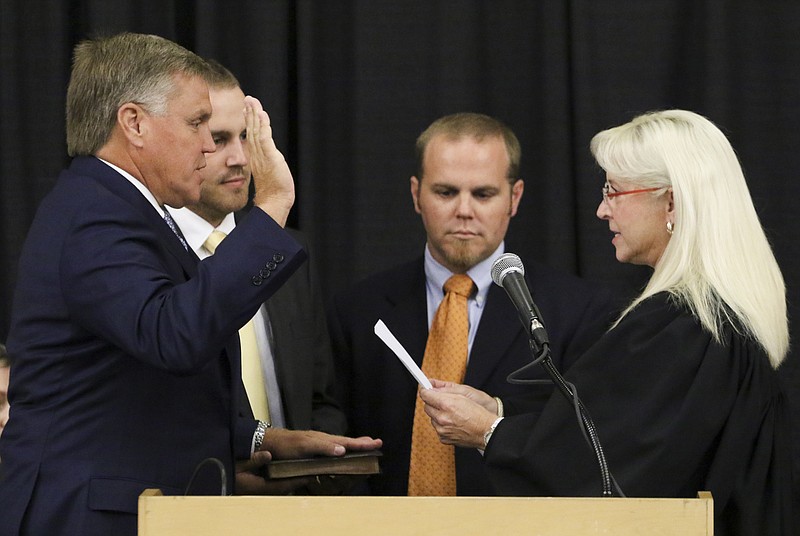If the city of Chattanooga and the other nine municipalities in Hamilton County learned a state law was on the books that required they be paid tens or even hundreds of thousands of dollars every four years, they would surely want that money if they knew it was deserved.
But a 27-year-old Tennessee law is on the books that says Chattanooga and the other municipalities owe money for quadrennial appraisals of every property in the county, money they've never paid before, and they're not too happy about it.
New Hamilton County Assessor of Property Marty Haynes learned of the law, which also allows counties to forgo the cities' share, when he took state training courses for his job. Last week, he informed municipalities' mayors what they owed for their portion of the 2017 reappraisal that will cost the county $2.28 million.
All counties do not bill their municipalities, but the practice to do so "is the norm rather than the exception," according to Tennessee Division of Property Assessments spokesman John Dunn.
Shelby County bills its municipalities. Nashville/Davidson, which has a metro government, does not. Nearby Bradley County also bills its two cities, Cleveland and Charleston.
The payments would range from $1,432 for the city of Ridgeside to $557,152 for Chattanooga.
What's unclear is why previous Hamilton County Assessors Claude Ramsey and Bill Bennett never chose to ask the municipalities to help pay for the quadrennial reappraisals.
The municipalities have a couple of choices. They could ask local legislators to carry a bill to rescind the law. However, should the legislators agree to do so, the bill is unlikely to go anywhere because most of the counties receiving money are probably more than happy to be getting it.
Or Haynes could just say "never mind; we'll pay for it all ourselves." But now that he's made the owed money public, that's unlikely to happen, either.
Perhaps there is a third way. If state, county and city legal minds agree, the assessor and the municipalities' mayors could strike a deal. They might come to an agreement on a percentage of the actual tab owed. Or, lacking that, the municipalities might agree to pay a quarter of their assessment for 2017, half in 2021, three quarters in 2025 and all of it in 2029.
A large bill out of the blue is a lot for municipalities to swallow. However, the law seems clear the money is owed. We hope the issue can be resolved with a minimum of rancor.
